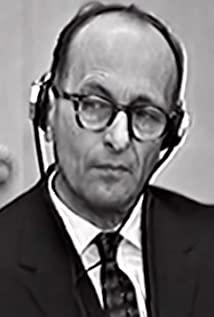In Hannah Arendt's films, Hannah's incomprehension often comes from her Jewish friends or Americans who think they want justice for the Jews, even though Hannah has repeatedly argued that she wants to talk about an ordinary little person How to be the biggest criminal of the 20th century in the Nazi system, yet this discussion of structural issues and human nature cannot be forgiven by nationalists who believe that Eichmann was first and foremost anti-Semitic, and thus the trauma of this nationality. Issues are paramount in reflecting on the war, which not only contributes to the publicity of national sentiments, and the condensation of Jewish consensus is also conducive to the future development of the nation, here we need to be vigilant, the upsurge of nationalism will not benefit practical issues It is easy to blind people's eyes, and even rush to the abyss of another serious sin. And Hannah, on another, deeper and different level, transcends the nationalists - "You're a Jew, don't you love a Jew?" "You know, I don't love anyone, I only love my friends .” and the accusation: “You turned the trial into a philosophy lesson.” Perhaps the rigorous mental discipline and restraint that philosophers experience has made them in some way monsters beyond the comprehension of most people, a Cold like a stone, arrogantly raising his chin, an emotionless monster. However, as we now know, Hannah is a part of the monstrous evil - a person who lacks the ability to think, surrenders his ability to be human, submits to the dogmatic ideology of the bureaucracy, and becomes part of a whole large evil centralized machine, Even if he is an ordinary man with basic virtues, that is, no ill will towards his wife, children, parents, or even Jews, he just obeys, because what the leader says is the law, and he will defend it to the death. The totalitarian Nazis and the Soviet Union provided Hannah with the latest slice of human nature, for her quiet and brave soul to explore and question, and a deep warning for future generations. Do philosophers still need to exist? True philosophers will not be afraid of the storm of utterances and death. Their insights often surpass hundreds of years at that time, and will also provide deep nourishment for the advancement of human society in a thousand years.
The combination of totalitarianism and racism gave birth to an invincible but monstrous regime like the Nazis, but after micro-anatomy, we should have more reflection on today's world-if it was you who carried out the task, you would choose to let the Did the Jewish train pass (no murder in the context, because it was just an upload), or did it make a different decision?
View more about Hannah Arendt reviews











